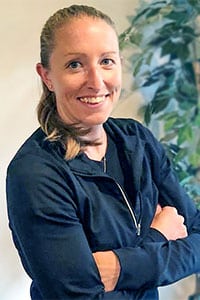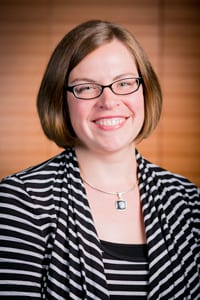During the spring semester, high school students at KM Global School will take a field trip to the UW–Madison, where they will turn an Easter egg into a little generator.
But the students won’t exactly be in the lab at the university.
Instead, they’ll log online and participate in a Zoom classroom where they’ll meet face-to-face with scientists from the UW Materials Research Science and Engineering Center (MRSEC) Education and Outreach Group. The students will build triboelectric nanogenerators using a bouncy ball, an Easter egg, aluminum foil, clear office tape, a few wires, and an LED light.

That activity is part of 28 Field Trips organized by the Discovery Outreach team this spring with nine school districts across Wisconsin, including Gibraltar School District in Fish Creek, KM Global in the Kettle Moraine School District in Wales, the LUMIN Online School with locations in Milwaukee, Racine, and Beloit; Muskego Middle School in Muskego; Oconto Middle School and Bayshore Community Academy in Oconto; Olson, Leopold, Cherokee Heights and Capital High in the Madison Metropolitan School District; the Taylor/Price County 4H in Medford; Thoreau Elementary in the Milwaukee Public School District; and the Upward Bound/Forward Service Corporation with locations statewide.
Field trip workshops are geared toward K-12 students of all ages with activities like the triboelectric nanogenerators, but also “Finding Buried Treasure” with a fossil activity led by the UW Geology Museum, and “Meet the Lab: Cancer Detectives – Superpowered by Laser Microscopes” led by the Melissa Skala Lab at the Morgridge Institute where students uncover some of the patterns researchers use to find new cancer treatments.
For more than ten years, the Field Trip Program at the Discovery Building has brought students and teachers to Madison, Wis., for a day of activity and exploration. But when the COVID-19 pandemic shuttered on-campus outreach activity, the Discovery Outreach Team had to get creative (which is a job they are already very good at).
It was clear last spring that the pandemic was in for the long haul, says Samantha Mulrooney, program manager at the Wisconsin Alumni Research Foundation. But the team wasn’t discouraged. They honed an online approach that is engaging, inspiring, and fun.
“We started to dig in and say, ‘Ok, what can we bring to this new online environment that will thrive? What is our sweet spot?’” Mulrooney says.

That sweet spot is to connect schools to UW–Madison scientists and researchers, says Val Blair, senior outreach coordinator at the Morgridge Institute.
“If students can actually meet a scientist and hear what their favorite color is, or where they went to school—and maybe they’re from your same rural hometown—that’s the impact that we are so proud to make,” Blair says.
Everyone is quick to point out that in-person Field Trips to campus are the most impactful experience for students—the trip itself, the hands-on experience, and the lab spaces always bring a ‘wow’ factor.
“Bringing kids to campus makes them feel like this could be where they could go someday,” says Anne Lynn Gillian-Daniel, education director at the MRSEC. “I mean, the number of times kids have come into this space and been like, ‘Oh my God, it’s a real science lab!’”
But until it’s safe to return, the Discovery Outreach team is trying to capture the ‘real science’ online.
One way is to create a “shared experience” for each Field Trip. That may include a kit mailed to each classroom with materials for building nanogenerators, or it may be a video tour of a researcher’s lab, or even a link containing images from cancerous tumors collected off a microscope in the Morgridge Institute.
“This is potentially a way for us to interact with people moving forward.”
Matt Stilwell, associate director of education at MRSEC
Field Trips are kicking off in March, so the Discovery Outreach team is working with researchers and scientists—and partners like MRSEC—to develop shared experiences.
“The Discovery team has been fantastic partners in every way,” says Matt Stilwell, associate director of education at MRSEC and a co-creator of the Triboelectric Nanogenerator activity. “I think one of the things that we’re learning from these pandemic times is centered around these kits. This is potentially a way for us to interact with people moving forward.”
MRSEC is also thinking about how to extend engagement, such as adapting activities for different ages and abilities, adds Stilwell.
The Discovery Outreach team can’t entirely replicate the impact of hands-on science at UW–Madison. But the pandemic’s limitations have presented new opportunities for expanding and engaging schools that would not be able to attend in person due to distance or other factors.
There is a renewed effort to incorporate accessibility into activities like the Field Trips, adds Gillian-Daniel. Sure, some households or classrooms may have foil and an Easter egg available, but mailing a kit with all of the components ensures everyone has the tools to participate and can hop right in.
“If you give them a kit, you’re making things accessible to all of the students and you aren’t making any assumptions at a time when accessibility is such an issue,” says Gillian-Daniel.
